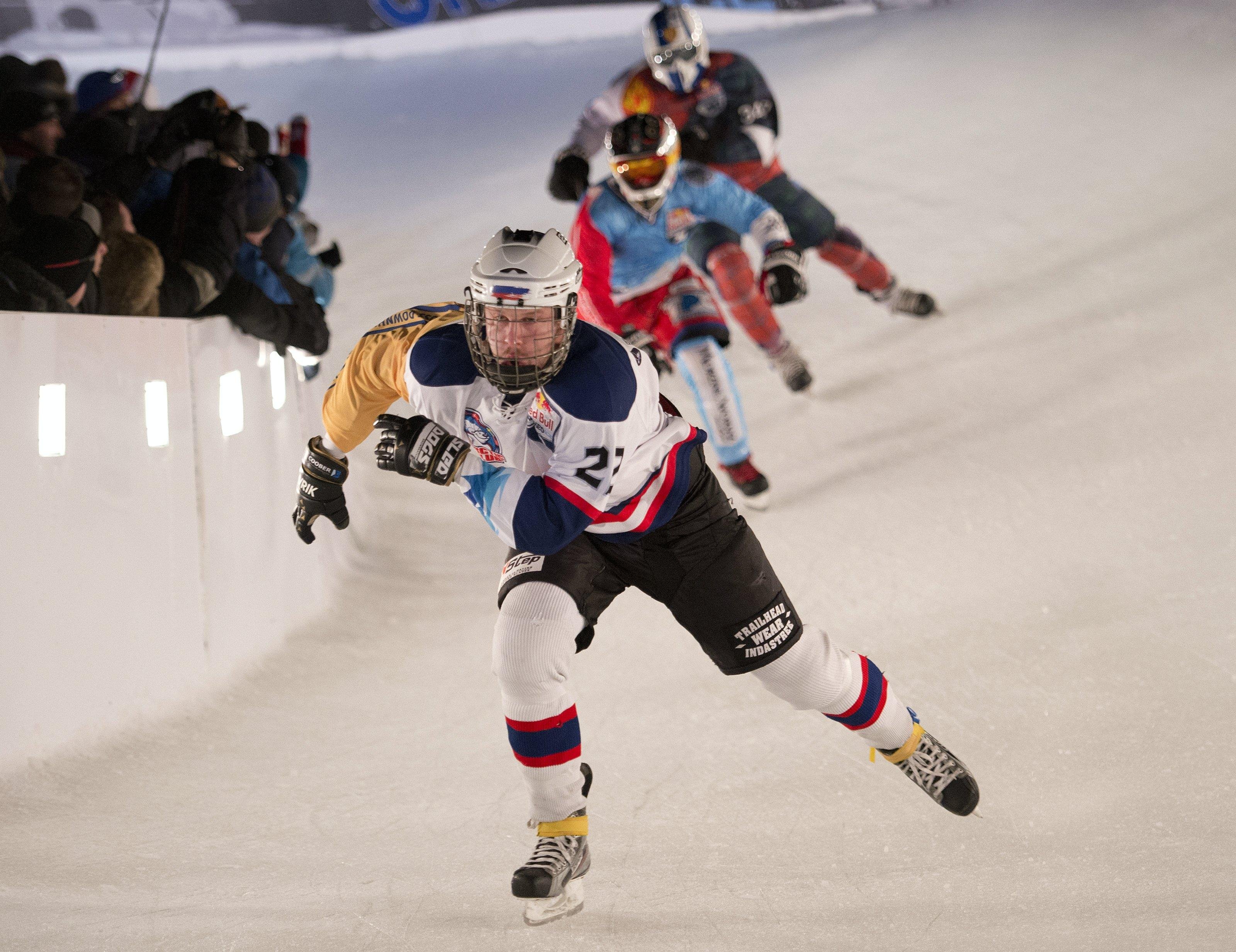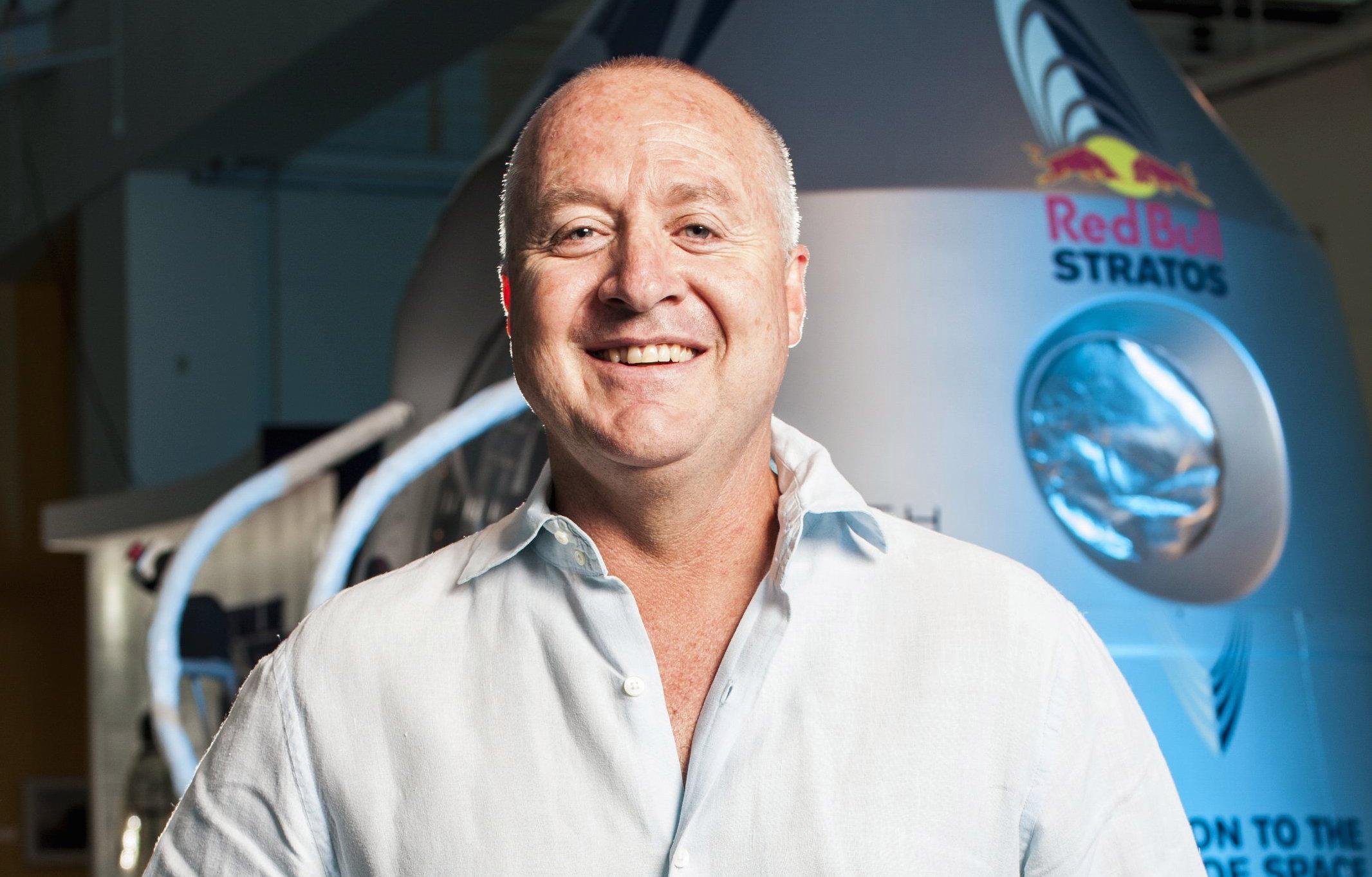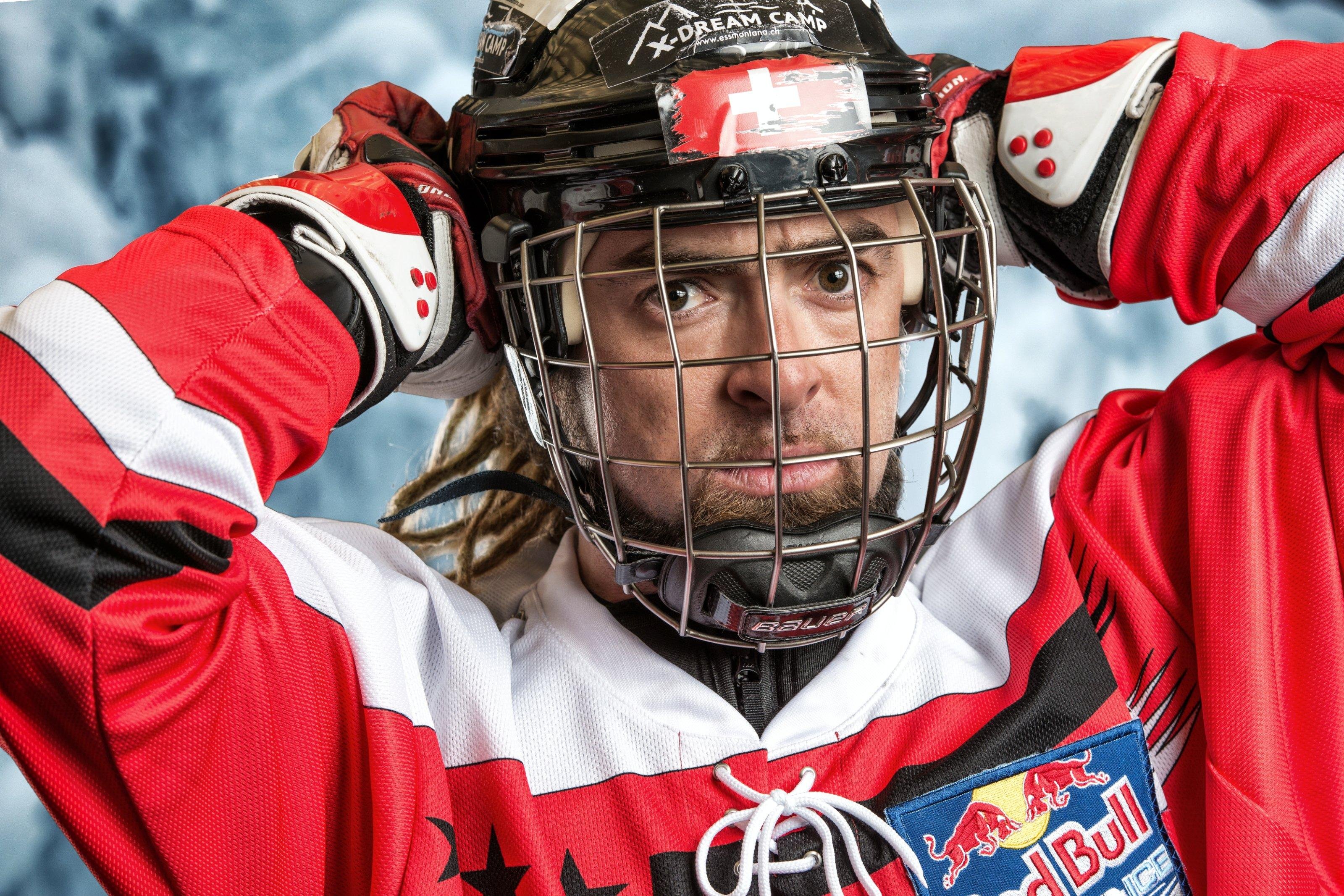You've got to keep your head together if you want to be the Ice Cross Downhill World Champion. And that goes beyond wearing a helmet.
It's a question that consumes fans everywhere. Why does an athlete at the top of his game fall short of potential at crunch time? The can't-miss goal that goes astray... Blowing a lead... Lagging out of the start gate... One small lapse in concentration sets off a collective groan heard around the world.
At Red Bull Crashed Ice, that stunned disbelief comes when contenders are brilliant in the Quarter-Finals and Semis, but can't seem to pull it together for top honors.
For six years, Canada's Scott Croxall was the poster child for unfulfilled potential, logging 13 appearances in the Finals without a win. Then in 2015 he broke through, going from his first individual event triumph all the way to the World Championship title.
Switzerland's Derek Wedge faced challenges after he captured the 2013 World Championship. "I generally manage pressure well, but having won the world title made it a bit heavier in 2014 – the pressure I put on myself, pressure from friends and fans, the media pressure and pressure of other riders," remembers Wedge, who slid to 15th in the standings last winter. "It did affect my performance a little."

Meanwhile, Andrey Lavrov of Russia, Finland's Paavo Klintrup and Switzerland's Kilian Braun (among others) are admired for their consistently high level of power and performance, yet a big victory still eludes them.
Granted, luck always plays a part in ice cross downhill, where the ruts grow deeper with every heat and bodies fly (and fall) at over 65 kmh/40 mph. But what will it take to get the standouts to the pinnacle of the podium – and keep them there?
Sports psychologists don't merely give pep talks. They provide techniques to help athletes break unproductive ways of thinking, optimize concentration and make the most of their skills.
Andy Walshe, the Head of Red Bull Human Performance, says that – in sports or otherwise – psychological preparation is a "tool in the quiver of elite performance."

Walshe works with hundreds of international athletes, supervising a team of sports scientists, nutritionists, biomechanics experts and sports psychologists in developing custom performance models and training plans that encompass both physical and psychological readiness. "At the top of the game you cannot leave any stone unturned, so we approach mental performance with the same level of importance as any other training element," notes the Australian-born PhD, who also helped prepare Felix Baumgartner for his stratospheric parachute jump in 2012. However, Walshe cautions that while mental training is part of being fully prepared, "too much reliance on it is an issue."
"Every turnaround or breakthrough has a psychological element as much as a physical and an emotional element," he comments. "But I think the lack of real understanding about 'psychology' means that it's an over-represented part of the stable of excuses you hear commentators speak about in many sports. It's very rare that you hear an announcer speak to the lack of fitness or poor nutrition as a reason for bad performances, so the default excuse is that the athletes were not mentally prepared."
Croxall, who trains with Dan Ninkovich at Beyond The Next Level in Ontario, seems to have found the kind of balance that Walshe is talking about.
"Dan involves both of these aspects of training – mental and physical. He's helped me with my confidence and teaches me to how to perform at my highest level without any distraction," Croxall states. "I think my experience, along with my training schedule, makes a huge difference for preparation, which puts my mindset in the right place to perform at my best!"

Wedge, too, credits experience as a key. Although he's never consulted a sports psychologist, he says, "I feel strong and confident psychologically. And at 32 years old, I have background and perspective. I have the chance to take full advantage of my life and my dreams, so I am positive every day, and I try to share the joy of living life to the fullest. I think my mental balance stems from this."
The 24-year-old Croxall, who was only a teenager when he first launched down an ice cross downhill track, is clearly looking forward to next season.
"I mentally know what I need to do to perform at the elite level. Now we just need to wait for the cold weather to come and see what kind of crazy track designs they can throw at us this season," he remarks. "I cannot wait to get back on the ice and get into race mode to defend the title."




